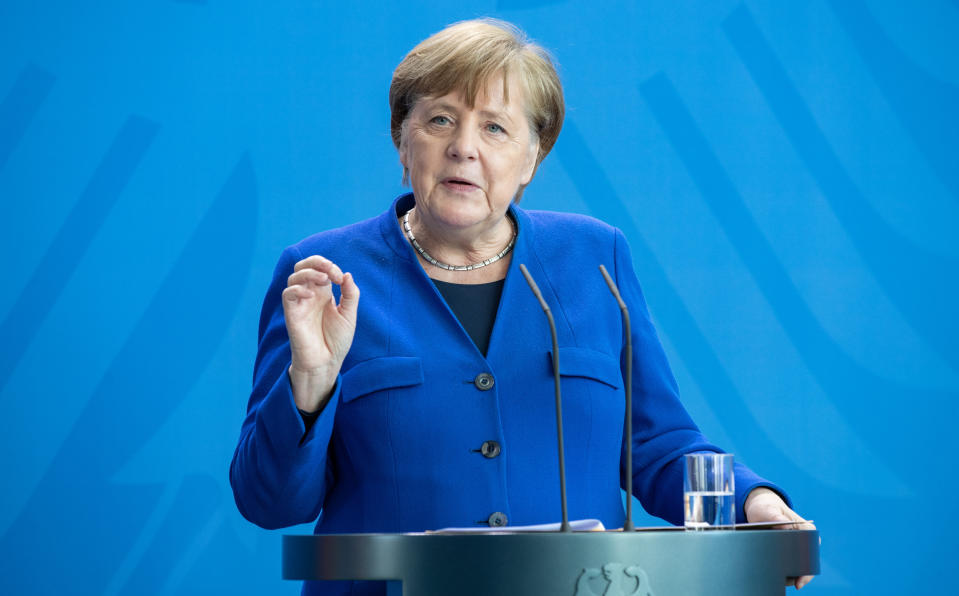Merkel warns 'we mustn’t think for one second that we are safe' as Germany eases COVID-19 restrictions

Angela Merkel said on Monday 20 April that Germany “must not think for one second we are safe” as the country enters its first week of looser lockdown restrictions.
"We have to stay vigilant and disciplined," the German chancellor said at a press conference in Berlin. "It would be a shame if we went into a relapse with our eyes open."
Merkel said while Germany’s tough lockdown had achieved a lot and had pushed the infections reproduction rate to under 1:1, the country was still at the beginning of the journey towards containing the pandemic – and “a long way from being out of the woods.”
Discussions about further easing up on coronavirus restrictions are not helpful, the chancellor said. Like most governments, Berlin’s big concern is that lifting restrictions too soon could trigger another spike in COVID-19 infections and subsequent shutdown.
According to Johns Hopkins University data, Germany has over 145,000 confirmed cases of coronavirus, and over 4,600 deaths.
Merkel was reportedly annoyed during the government’s coronavirus cabinet meeting on Monday morning about the “orgy of discussions” (“Öffnungsdiskussionsorgien”) at state levels on how to open up the country again.
Read more: Coronavirus: Eyes turn to Germany's lockdown exit plan as potential blueprint
Later in the afternoon she said that she has the feeling that discussions taking place since last Wednesday “insinuate a security that is not there yet.” It is still vitally important for people to maintain at least 1.5m physical distance and adhere to the rules of only meeting people outside your own household in groups of maximum two.
Germany’s response to the coronavirus pandemic has been closely watched as the country has a much lower fatality percentage rate than the UK, Italy, and Spain. The health ministry said today that the testing rate is around 70,000 people per day.
Small shops are allowed to reopen in Germany from today, and schools are looking at opening for exam-taking classes and some primary school classes from 4 May.
Read more: Angela Merkel’s final act is her biggest challenge so far
Carmakers are slowly bringing their plants online in Germany and across the EU from this week too, which have been idled since mid-March.
However, it is ultimately up to each of the 16 states to decide on the exact rules. Bavaria, for example, will make it mandatory to wear face masks in shops and on public transport, whereas Berlin has so far not committed either way.
Restaurants and bars must stay closed until 4 May, and potentially longer, while concerts and sports events are completely banned until 31 August.